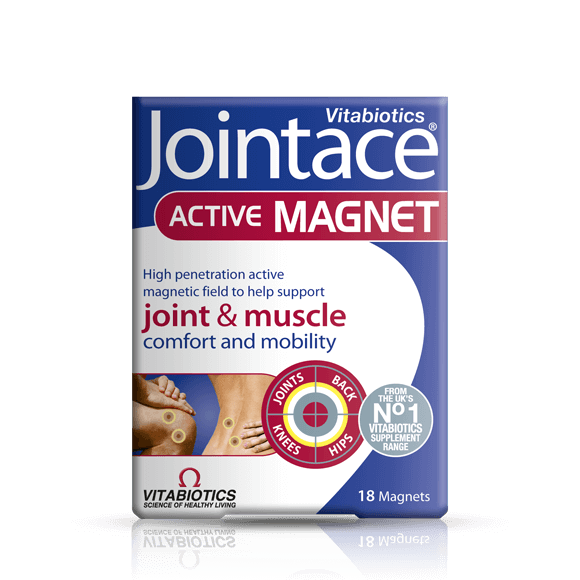Benefits of magnesium: what is magnesium good for?
There are several magnesium benefits which help us to maintain good all-round health.
Magnesium for the reduction of tiredness and fatigue
Magnesium has been shown to help with the reduction of tiredness and fatigue. A low magnesium status has been associated with symptoms including fatigue.
Magnesium for normal psychological functions
Magnesium has been shown to contribute to normal psychological function, as well as the normal functioning of the nervous system.
Magnesium for muscles
Maintaining healthy muscles is important as it helps us to move comfortably throughout life. Magnesium has been shown to contribute to the maintenance of normal muscle function which includes heart muscle contraction.
Magnesium and metabolism
Magnesium contributes to normal energy-yielding metabolism. We need normal energy release for all functions and activities of the body, which includes physical activity and exercise.
Magnesium for bones
Our bones protect our organs - such as our heart and lungs - and allow us to move comfortably through life. Plus, as we get older, it’s important to maintain healthy bones as they can often become weaker with age. Magnesium has been shown to contribute to the maintenance of normal bone development in all ages
How much magnesium do you need per day?
There are recommendations in place which offer guidance on the amount of magnesium that adults and children need each day. According to some experts however, there are times when higher levels of magnesium can be beneficial.
How much magnesium per day for a woman?
The UK’s Department of Health and Social Care recommends women should consume 270 mg of magnesium per day. For women who are pregnant and lactating, the recommended amount of magnesium remains the same.
How much magnesium per day for a man?
It’s advised that men consume 300 mg of magnesium every day. This can be achieved through the diet or with the help of a supplement.
Magnesium in the diet
There are several foods that can help to maintain healthy levels of magnesium and these can all be easily incorporated into your day-to-day diet. Here are five foods which contain the highest amounts of magnesium:
Pumpkin Seeds per 28g -150 mg
Tofu per 1 cup - 146 mg
Chickpeas per 100g -115 mg
Tuna per 170g fillet - 109 mg
Nuts - particularly Almonds, Brazil Nuts and Cashews per 28g - 82 mg
Why not add nuts and seeds to porridge, omelettes, or smoothie bowls? Chickpeas work great thrown in casseroles and soups or blended up into hummus, whilst tuna and tofu work great in sandwiches or salads.
Our best magnesium supplements
A magnesium supplement can help safeguard your intake of this essential mineral. At Vitabiotics, we offer a range of different supplements to suit different needs. Just two tablets of Vitabiotics Ultra Magnesium delivers more than 100% of the Nutrient Reference Value (NRV) of magnesium, providing 375 mg. This is ideal for anyone seeking extra bone support and is also suitable for anyone, including those with hectic lives and the over 50s.
Vitabiotics Wellwoman Energy offers an advanced effervescent formula with each tablet providing 60 mg of magnesium, as well as other essential nutrients needed for energy release such as vitamins B6, B1 and iron.
Wellman Energy also provides 60mg of magnesium per effervescent tablet, and is ideal for an extra nutritional support, whenever and wherever you need it.
For those who have difficulty swallowing tablets, Vitabiotics Osteocare Original is available in a chewable tablet and liquid form, as well as the regular tablet form. Each two regular tablets or two chewable tablets contains 300 mg of magnesium as well as other nutrients such as calcium, vitamin D and zinc, all of which contribute to the maintenance of normal bones. The liquid form provides 150 mg of magnesium per two 5ml serves.
What is the best time to take magnesium?
If you choose to take a magnesium supplement, follow the instructions on the packet which will give you directions on the best time to take it. Check out the full range of Vitabiotics magnesium supplements here.
It’s important to consume enough magnesium as it supports our health in many different ways. If you’re not getting enough through your diet or you need extra magnesium support, a supplement can help to safeguard your intake.







Comments (0)